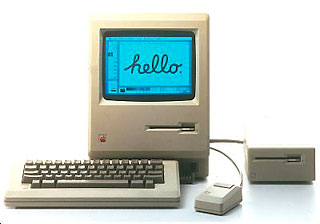The early 1900s brought many radical technological changes to the world. The one that I am the most grateful for is the machine I am sitting at right now. That's right, I'm talking about my pretty little laptop.
For all of the reasons that I dislike computers, such as the amount of time they suck out of my life, they really are niffty little things. I know that the Macintosh 128K was by no means the first programmable computer, but it is the familiar face I grew up with, so here it represents the those early dinosaurs. But even before these programmable computer machines, Charles Babbage created the "difference engine", and helped begin the computer age as early as the 1850s.
Friday, October 15, 2010
Tuesday, October 12, 2010
Democracy: The American Experiment
The Europeans that first landed on the virgin shores of North America didn't intend to to start a country and even a whole new way of life, but over time this is what they did in the famous, American Experiment.
For centuries American Democracy has changed the world, through example and its continuance through many national and international issues.
Alexis de Tocqueville, was a French political thinker who traveled through America in the early 1800s or 19th century, who published his observations on the American experiment in his book, Democracy in America, which looks not only at the government itself but of the affects that this form of government, and the ways of thinking that parallel it, have on the lifestyle of the people that live under it.
I would like to highlight three chapters, 8 - 10 of Volume 2, that I found particularly interesting and that relate to the class topics of American Democracy and the changes in the family in the 19th century discussed last week.
For centuries American Democracy has changed the world, through example and its continuance through many national and international issues.
Alexis de Tocqueville, was a French political thinker who traveled through America in the early 1800s or 19th century, who published his observations on the American experiment in his book, Democracy in America, which looks not only at the government itself but of the affects that this form of government, and the ways of thinking that parallel it, have on the lifestyle of the people that live under it.
I would like to highlight three chapters, 8 - 10 of Volume 2, that I found particularly interesting and that relate to the class topics of American Democracy and the changes in the family in the 19th century discussed last week.
Subscribe to:
Comments (Atom)

